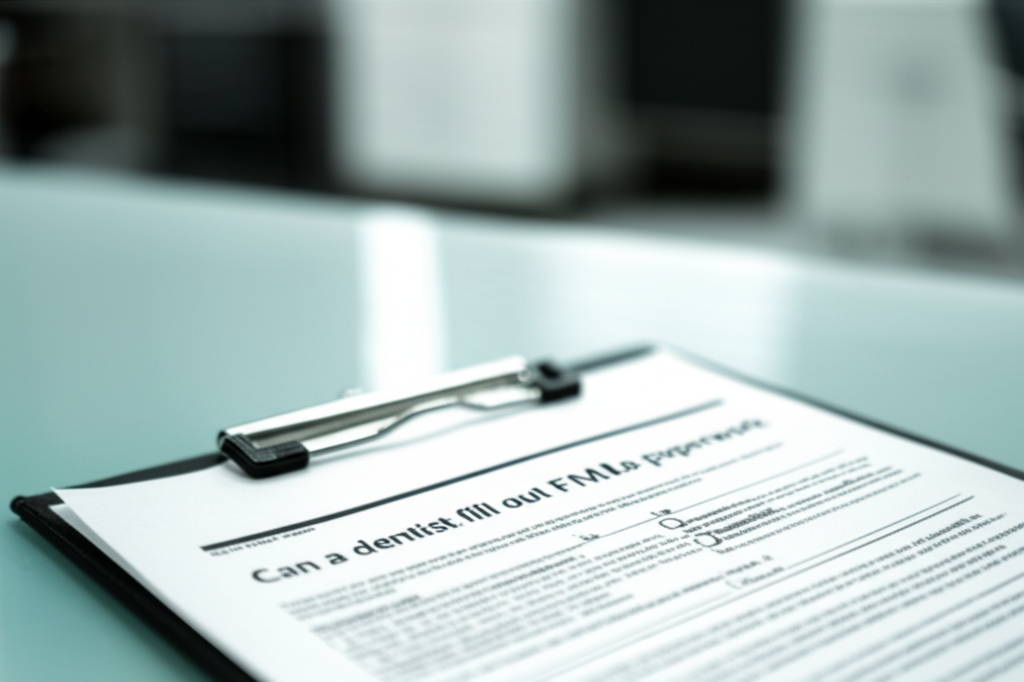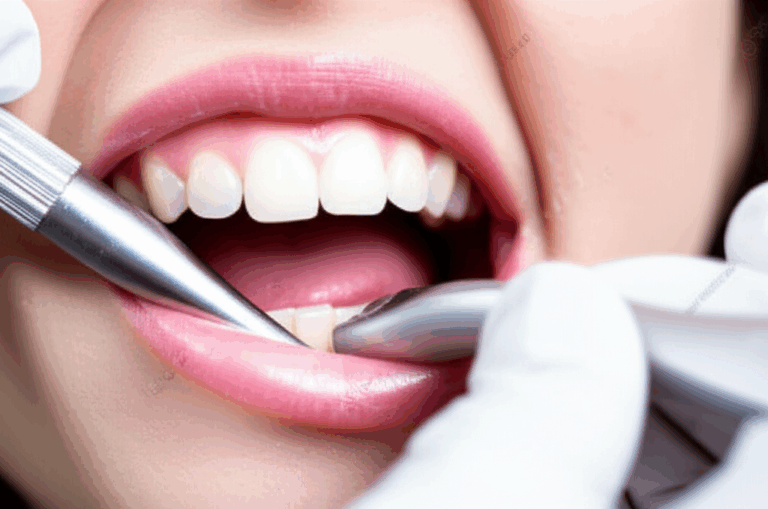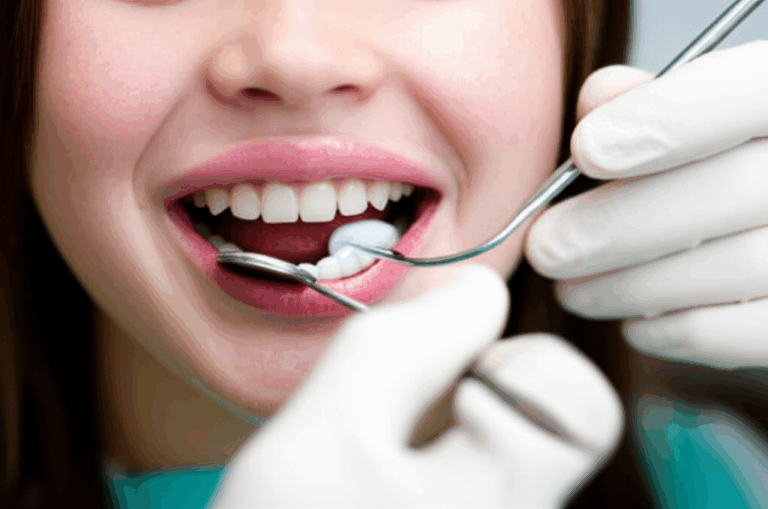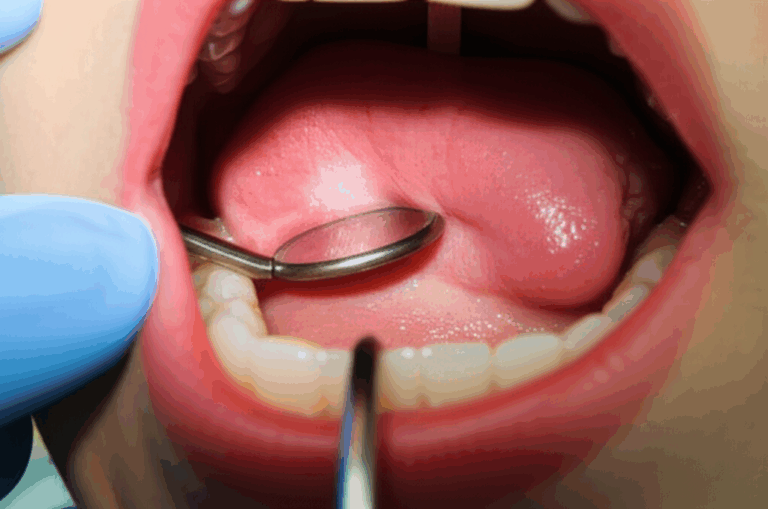
Can a Dentist Fill Out FMLA Paperwork? Your Friendly Guide to Dental Leave Under FMLA
That moment when tooth pain makes it impossible to work—it happens more than you might think. Maybe you need surgery to get your wisdom teeth out, or you have a gum infection that keeps you home and feeling awful. So you might wonder: Can my dentist fill out FMLA paperwork so I can take leave from work without worrying about losing my job?
You’re not the only one asking. Let’s go through this together, so you know your rights and how to get the help you need for your health (or for someone you love) without adding more stress.
In This Article
- What Is FMLA, and Why Might You Need It for Dental Problems?
- Are Dentists Considered FMLA “Health Care Providers”?
- Which Dental Problems Actually Count as Serious Health Conditions?
- How Does a Dentist Fill Out FMLA Medical Forms?
- What Do You Need to Do as an Employee?
- Using FMLA to Care for a Family Member’s Dental Health
- Common Questions (And Simple Answers)
- What to Remember and What to Do Next
What Is FMLA, and Why Might You Need It for Dental Problems?
Let’s start with the basics. Understanding FMLA might seem confusing, but it’s not so hard once you know a few simple rules.
The Family and Medical Leave Act (FMLA) is a U.S. law that protects your job and health insurance while you take unpaid leave for certain family or health reasons. This law gives workers up to 12 weeks off in a year without losing their job. So, if something big happens in your life—like a health emergency—you can take time off without worrying about getting fired.
Most people think of FMLA for things like being in the hospital, serious sickness, or having a baby. But here’s the surprise: some dental problems also count. Things like oral surgery or hard dental treatments can leave you unable to work, just like a broken leg might.
Let’s talk about the important questions: Can a dentist fill out the forms? What kind of dental problems count? And how do you make sure your time off gets approved?
Are Dentists Considered FMLA “Health Care Providers”?
Let’s answer this one right away because it worries a lot of people.
Simple answer: Yes. Dentists do count as “health care providers” under FMLA. This is not a trick or a hidden rule—it’s right there in the government’s own words.
The Department of Labor (DOL) says (29 CFR § 825.125) that anyone “authorized to practice medicine, surgery, or dentistry… includes doctors of medicine, osteopathy, podiatry, dentistry (DDS or DMD), or optometry, nurse practitioners, etc.”
So:
- All general dentists and dental specialists (like oral surgeons, gum doctors, root canal dentists, kids’ dentists, and more) are covered.
So, if you need a tricky root canal, oral cancer treatment, or wisdom teeth out with a long recovery, your dentist can fill out and sign the FMLA medical forms.
Tip: If your boss or HR says your dentist can’t do this, show them the DOL’s language. You’re right, and the law backs you up.
Which Dental Problems Actually Count as Serious Health Conditions?
Not every tooth problem is serious enough for FMLA—but some are.
The law isn’t picky about who treats you. It cares about how bad your problem is.
What Is a “Serious Health Condition” Under FMLA?
FMLA covers a few kinds of problems:
1. Inpatient Care
If your dental problem puts you in the hospital or a similar place overnight, you’re covered. This can happen with:
- Big oral surgeries (like jaw repair after an accident)
- Bad infections needing IV drugs
- Major problems after dental treatment
2. Ongoing Treatment by a Health Care Provider
This means you can’t work and you need more visits to the dentist. This counts if:
- You can’t work for over three days and need treatment.
For example: A big abscessed tooth that needs pulling, medicine, and several days off. Your dentist marks on the form that you can’t go to work or even do basic chores.
- Chronic (long-lasting) issues needing care at least twice a year, regular medicine, or visits.
Examples: TMJ jaw pain that flares up, big gum disease needing lots of care, or oral cancer needing check-ups.
- More than one treatment for a problem (like several surgeries for implants) when you’re having problems.
3. Time Off for Treatment
If your treatment or recovery means you have to miss work (and your dentist writes this on the form), this might count too.
4. Pregnancy-Related Dental Problems
Sometimes, being pregnant causes big issues with teeth or gums. If your pregnancy gives you a serious dental problem, FMLA can help.
But Not Every Dental Visit Counts!
Regular fillings, yearly cleanings, braces adjustments (unless they stop you from working), or whitening do not count—unless something really serious happens. FMLA is not for small aches, but for dental problems that make working impossible for a while.
How Does a Dentist Fill Out FMLA Medical Forms?
Let’s get down to the paperwork. What forms do you need, what does your dentist write, and how do you get the process to go smoothly?
The FMLA Forms
Your job will give you a medical certification form. Some common forms are:
- Form WH-380E: For your own “serious health condition.”
- Form WH-380F: If you need time to care for a family member.
You usually get these from your job’s HR team, or you can download them from the Department of Labor website.
What the Dentist Writes
Your dentist will fill out the form with info like:
- Your diagnosis: The name of your dental problem (e.g., “tooth abscess” or “mouth cancer”).
- When it started and how long you’ll be out.
- What makes you unable to work: Are you too sore to eat, talk, or do your job? Are you under pain meds or sedation?
- Treatment plan: Any surgeries, hospital stays, medicines, or follow-ups.
- Time needed off: Is it all at once or just some days/hours for appointments?
Why It’s Important to Be Clear:
Employers can say no to your request if the forms are not filled out fully or clearly. If your dentist just says “needs a few days for a procedure,” that isn’t enough. They have to say exactly what makes you unable to work and how long it should last.
Pro-tip: Tell your dentist about your job and what you do, so they can explain on the paperwork how your problem keeps you from working.
Second and Third Opinions
If your job doesn’t believe the form, they can (and will pay for) ask for a second or third doctor or dentist’s opinion. This isn’t common, but it does happen sometimes. Strong forms with good details help you avoid problems.
What Do You Need to Do as an Employee?
Getting FMLA isn’t just about forms. There are steps you need to take to be sure you’re covered.
Here’s What You Should Do:
- Let your job know as soon as you can.
If your dental work is planned ahead, tell HR at least 30 days before. If it’s an emergency, tell them as soon as you’re able.
- Get and turn in forms fast.
Once your job asks for the medical certification, you usually have 15 days to get your dentist’s form filled out and sent in.
- Follow your job’s usual rules.
Some companies have extra steps or their own forms, so check your handbook or ask HR.
- Keep in touch.
If your recovery takes longer or you need more appointments, keep your boss or HR updated (with notes from your dentist if asked).
If you run into trouble—like being told your dentist can’t sign or your forms aren’t “good enough”—show your HR the Department of Labor’s FMLA rules. This often clears things up quickly.
Using FMLA to Care for a Family Member’s Dental Health
Sometimes, you need time off to help a family member who has a bad dental problem. FMLA can help you take care of them.
You can use FMLA leave to care for:
- A child (even step or adopted)
- A spouse
- A parent (birth, step, adopted, or someone who cared for you as a child)
What you need:
- Your family member’s dental issue must be a “serious health condition.”
- Your help must be “medically needed” (for example, helping after they’re sedated or in pain, giving medicine, or providing company).
Tip: Caring means physical and mental support—not just driving them. Helping them eat, manage pain, or get through surgery counts too.
Your loved one’s dentist fills out Form WH-380F, listing the problem, the care needed, and why your help is needed. You just need to turn everything in on time and explain how you help.
Common Questions (And Simple Answers)
Let’s look at some real-life questions that come up with the dentist or HR all the time.
Q: Can I use FMLA for wisdom teeth removal?
A: Usually, yes! If getting your teeth out (because they’re stuck, infected, or you have problems from surgery) means you can’t talk, eat, or go to work for a few days, your dentist can fill out the right paperwork.
Q: What if my boss says a dentist “doesn’t count”?
A: Show them the DOL’s rules—dentists are included! You are within your rights.
Q: Does FMLA cover time off for dental visits or treatments spread out over time?
A: Yes, if your dentist says you need it for medical reasons. Many dental problems (like bad gum disease, mouth cancer checks, or TMJ) need care every so often, not all at once. FMLA lets you take hours or days off when you need to.
Q: My dental issue isn’t super serious. Can I still use FMLA?
A: The problem doesn’t need to be life-threatening. It just has to really keep you from working for more than three days or be a long-lasting dental problem needing regular care. Lots of painful dental problems meet this rule—so don’t say no to yourself before checking!
Q: Why do dental FMLA requests get denied?
A: These are the main reasons:
- The dentist didn’t fully explain why you can’t work or forgot to show ongoing care.
- The forms came in too late or not at all.
- The dental issue is something minor (like a filling or regular cleaning).
If you feel your request was wrongly denied, call the Department of Labor or your state’s work agency for help.
What to Remember and What to Do Next
Here’s the short version so you won’t forget:
Remember:
- Dentists are allowed to fill out FMLA forms for qualifying dental problems—you have the right to get these papers from your dentist if your dental problem is serious enough.
- Not every dentist visit meets the “serious health condition” rule. But being in the hospital, having surgery, needing many days to recover, or having long-term painful dental issues often does.
- Good FMLA forms from your dentist must be clear, detailed, and turned in on time.
Talk openly to your dentist about what your job is like, so they can show on the form why you can’t work.
- Tell your boss in advance if you can, turn in the forms on time, and keep everyone updated, especially if things change.
- If you hit a problem, the Department of Labor rules are on your side—don’t worry about asking for help.
Extra Tips for Easier Dental FMLA
1. Keep a copy of everything.
Take pictures or scans of the form your dentist fills out, as well as emails with HR.
2. Know your job’s own rules.
Some places want extra paperwork or a doctor’s note before you go back after surgery—ask ahead.
3. If you don’t know, just ask.
Dental offices see FMLA forms all the time. If your dentist is unsure, show them the official Department of Labor rule.
The Big Picture: Be in Charge of Your Health and Your Rights
You shouldn’t have to “just deal with” pain or be scared about losing your job because of a dental problem. Knowing your rights with FMLA—and what your dentist can do for you—means you’ll have more control if something serious happens.
If you want to find out more about getting your teeth fixed or want to explore things like dental implants or new treatment methods, great clinics work closely with implant dental laboratories and dental ceramics labs to give you back your smile and your well-being. If you want to learn about digital solutions for your teeth, see what a digital dental lab can do for you.
Most important, don’t wait! If you need FMLA for yourself or someone you help, being clear and prepared makes everything go smoother.
Your Healthy FMLA Checklist
- [x] Make sure your dental (or family) issue is a “serious health condition.”
- [x] Tell your boss as soon as you know you’ll need time off.
- [x] Get your dentist or specialist to fill out the FMLA paperwork completely.
- [x] Turn everything in on time, and save copies.
- [x] Stay in touch with your workplace, let them know if anything changes, and show them Department of Labor rules if needed.
Still Confused?
You’re not alone. If any part feels tricky, the Department of Labor’s FMLA FAQ page has easy-to-read answers.
Talk to your dentist or HR before your treatment starts—planning ahead makes everything easier for you.
Bottom Line
You asked, “Can a dentist fill out FMLA paperwork?”
The answer is a sure yes—if your dental problem is serious, you have the right forms, and your dentist fills them out fully. Use this guide to feel confident and in control when you need leave for dental reasons. Stay healthy and keep smiling!
Want to talk about your dental options or see what’s possible with new tools for your teeth? Modern dental labs—from removable denture labs to those making crowns and bridges—are helping dentists make patients healthy and happy again. Work with your dentist to find the best plan for your smile—at work and at home.








